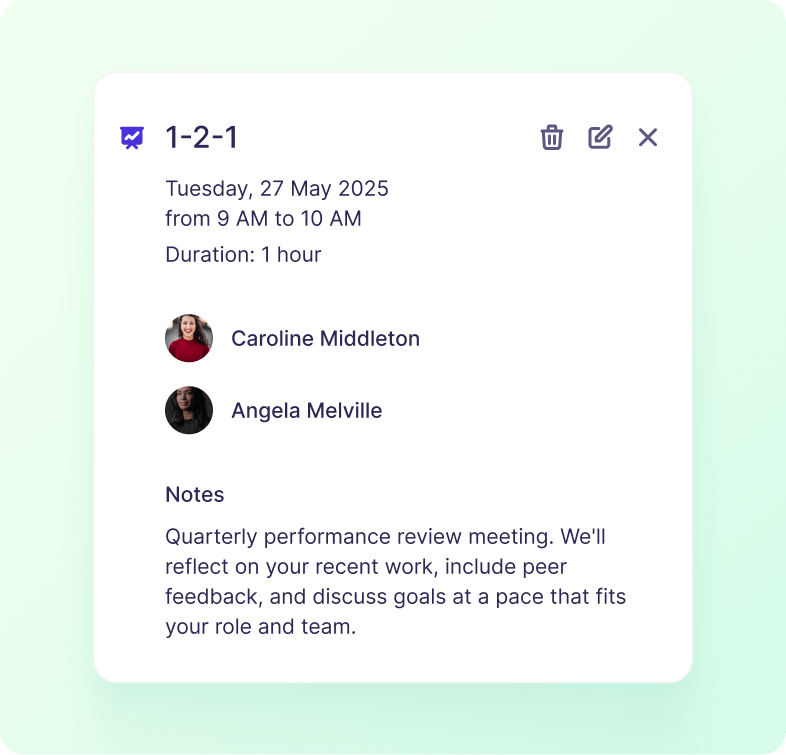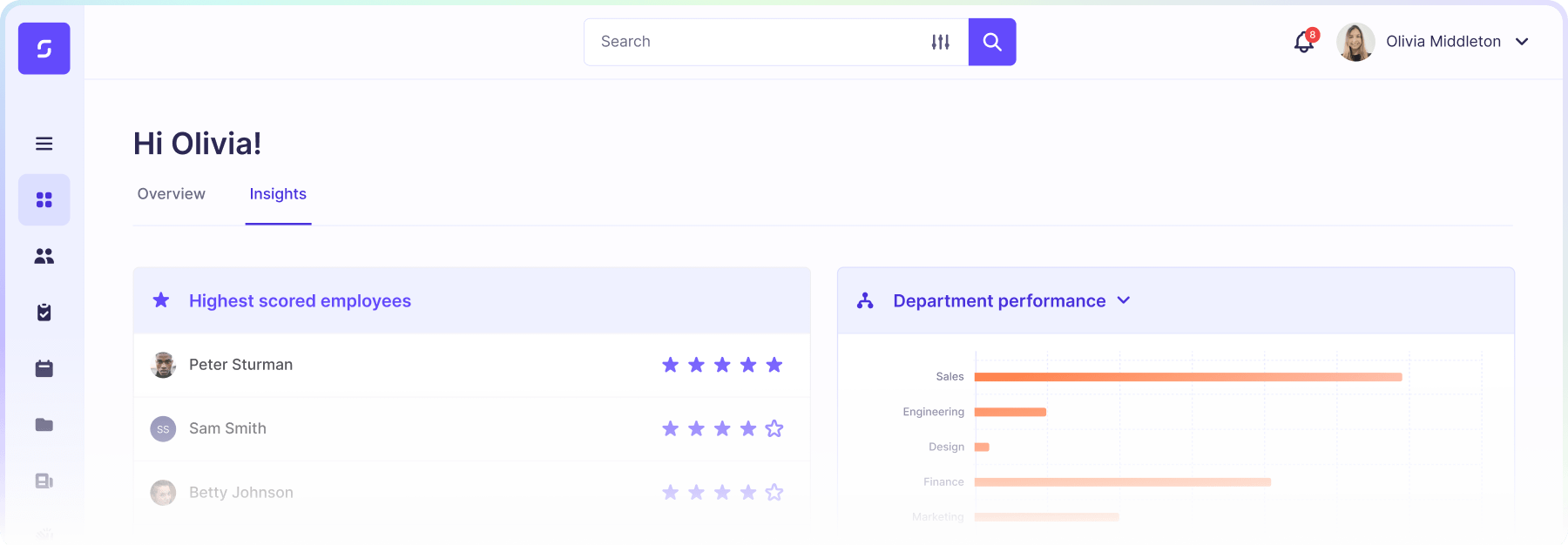Many of our customers are delighted with how Sense HR helps them manage employee performance, as we are intuitive enough to be easy to use for smaller companies with fewer resources, but we are customisable enough to adapt to even the most complex processes required by larger enterprises. However, if you’re looking for a system other than Sense Workplace, there are plenty of other options:
- Small businesses: Simple and affordable performance management tools such as Effy AI or 15Five are ideal. They offer straightforward staff performance evaluation and continuous feedback without complex setup.
- Medium-sized businesses: Options like BambooHR, Lattice, or Namely provide richer performance review software, with features for goal tracking, employee development, and engagement.
- Large enterprises: Platforms such as Workday or SuccessFactors excel at large-scale employee performance management software. They offer advanced analytics, integrations, and robust employee performance tracking for complex structures.
Remember that Sense Workplace integrates with many business tools, including other HR systems – so if you’d like to take our time and attendance system, or our employee location system, then you don’t need to move away from your current HR system or performance management software, as we can help you ensure all of your data links up between systems


